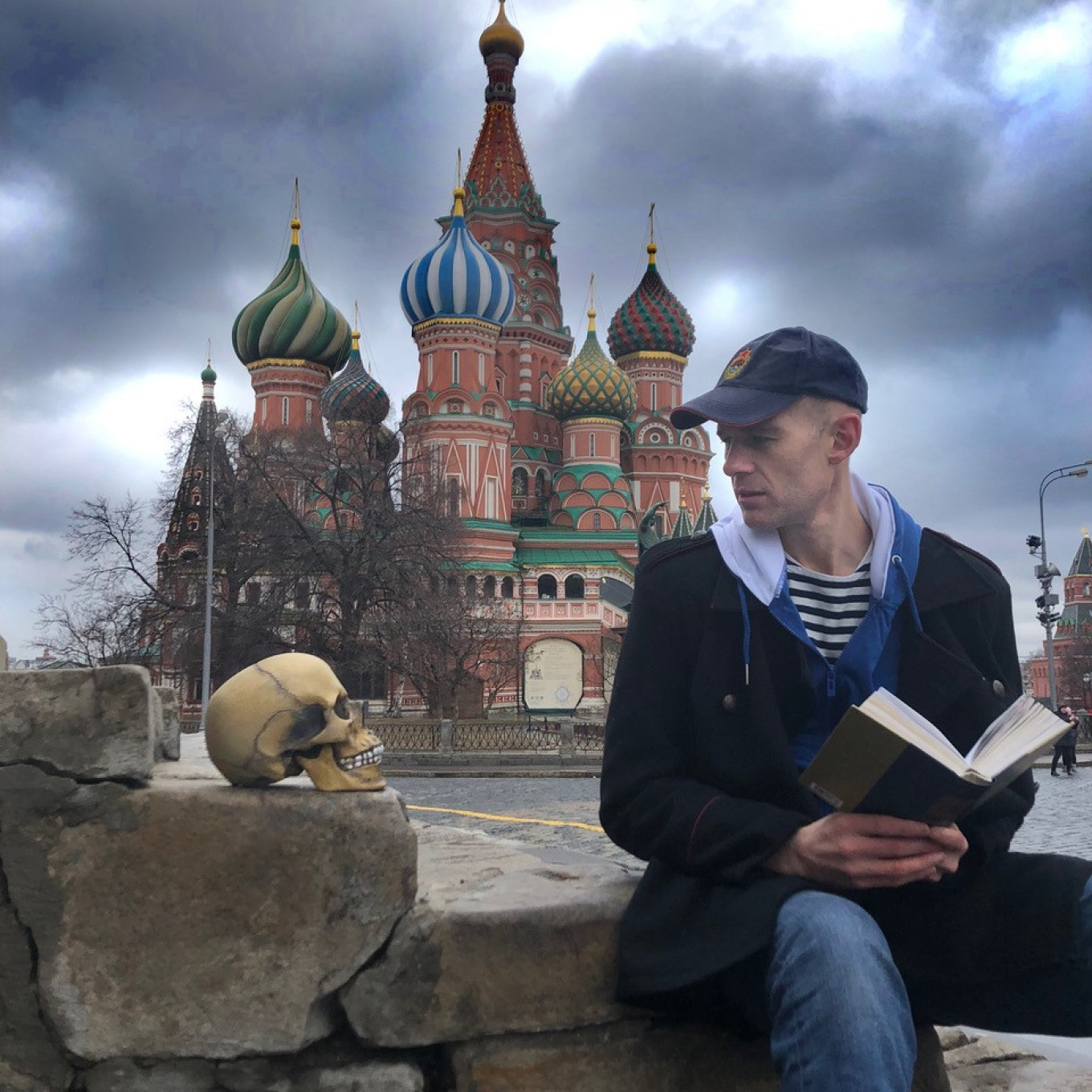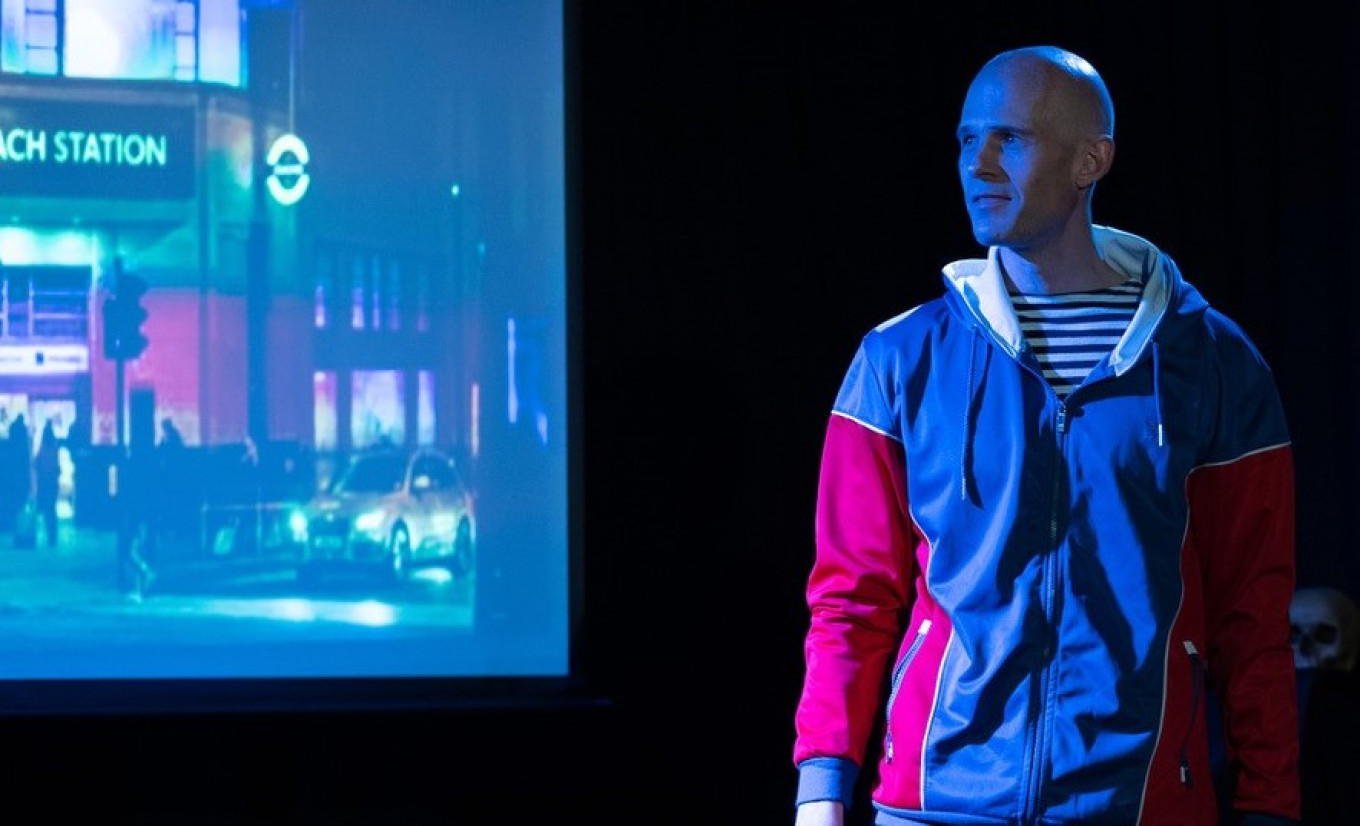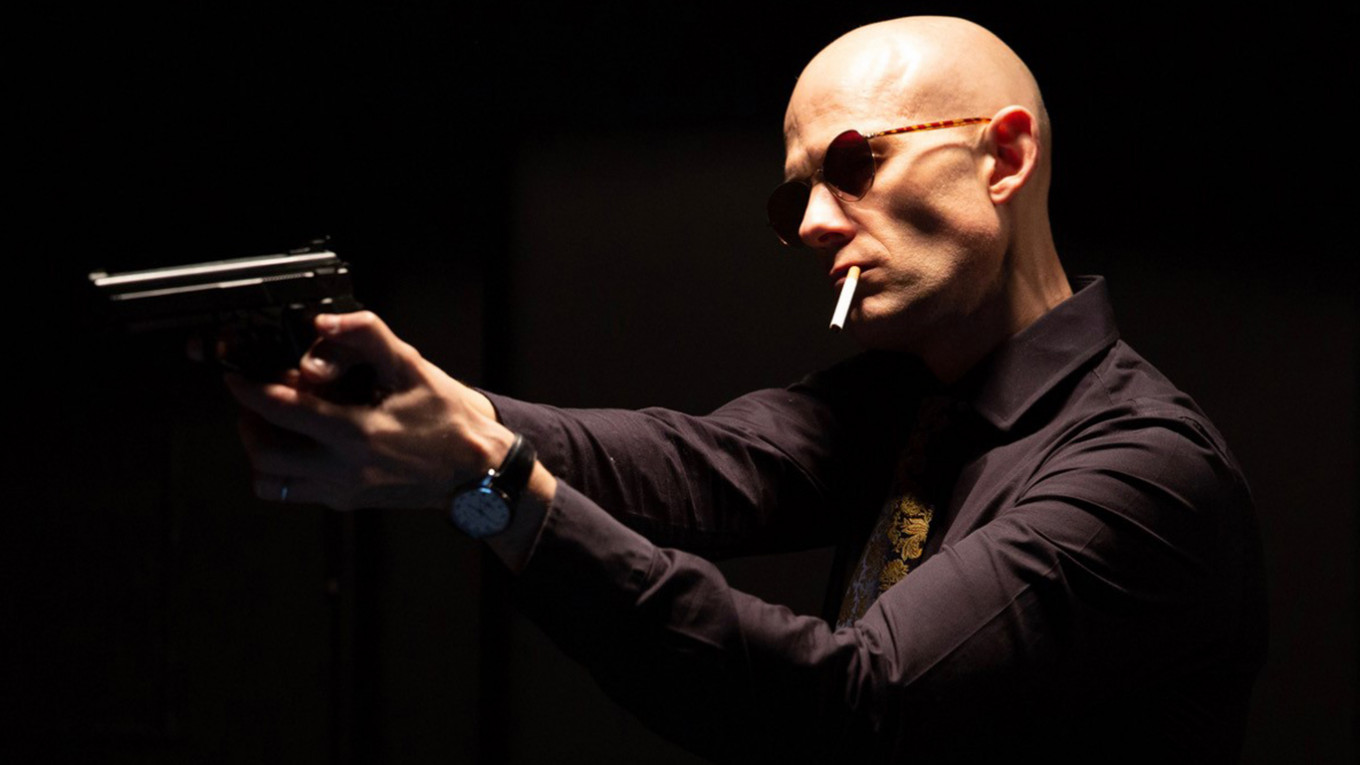You know him as Anton on "Killing Eve." Or the Russian officer in "Red 2." Or the murderous bodyguard in "Jack Ryan: Shadow Recruit." A tall, bald Russian actor who specializes in mean and threatening.
Wrong.
The actor is actually Andrew Byron. He was born in Bath, England to a French mother and an English father.
And after playing a slew of Russian bad guys, he has invented a Russian alter ego, Innokenty Makarov, who is a thoroughly good guy. This weekend, Byron brings his one-man play, "The Good Russian," to Moscow.
Code-switching

Although Byron wouldn't mind playing more middle-class English characters — playing to type, as it were — the almost 30 Russians and East Europeans he has played on the big and little screen have given him an enviable career, even if it began with one little fib.
He grew up speaking French with his mother and English with his father, which probably had something to do with his ability for code-switching. “When you speak to your mother in French, turn to your father and speak English, turn back to your mother and say something in French… and you do that for 18 years, your brain develops a kind of gymnastic ability to switch over.”
His father, as it turned out, was a Russian teacher, and Byron began learning the language while still in high school. It was a struggle — all those cases and conjugations — and Russian seemed like a dead language, like Latin, without real people to speak with. But then he had a moment of revelation: a visiting Russian. As he showed her around using his halting language skills, she replied in her beautiful Russian. The language came to life, he began to put some effort into this work, and soon found himself at St. Andrews University studying Russian.
His second breakthrough came on a study abroad program in Odessa, where he left the dorm and company of other British students to live with a local family. He picked up the language — and something more.
“I was very insecure in myself and who I was — a country English boy who went to a private school didn’t fit in. Russian gave me a new identity, it was like putting on a different coat or mask. There’s polite, nice, very reserved, slightly shy English Andrew… and then there’s the more direct Russian Andrew. You know how they’ll say in Russian, ‘Wash your hands.’ English people would say, ‘I think you should wash your hands. Could you wash your hands please? Are you not going to wash your hands?’ - that sort of passive-aggressive thing.”

Breaking stereotypes
After graduating with an M.A. in Russian, Byron went on to drama school and then began to look for work. “When you are starting off, you need to find a niche. Mine was Russians. They wanted a native speaker… and I wasn’t the real deal. I was a total fake, but acting is 90 percent fakery anyway, so I said my mother is Ukrainian.”
That fib got him in the door, and once in, with his excellent Russian accent and conversational Russian for improvisation, he had no problem getting and keeping jobs.
But there was one problem. “In ‘Silent Witness’ I was a killer.” In ‘Jack Ryan’ I was a murdering bodyguard. And then there’s Anton in ‘Killing Eve,’ who is very dislikeable. Most of them get shot.”
Byron wanted to play a range of characters, including someone like himself “a middle-class English dad.” So he decided to write a one-person play about a nice English guy. Only somehow the character turned out to be really nice Russian guy. “He’s based on a friend of mine, a really decent, honest, hard-working guy.”
In his show, “The Good Russian,” the main character — Innokenty Makarov — is a Siberian who has grown up on Conan Doyle and other literature, and expects the U.K. to be filled with ladies and gentlemen and politeness. “But he comes and it’s Brexit, low-key xenophobia, and suspicion of Russians.”
The play follows Innokenty (Kesha) as he tries to find a way to fit in. He ends up leaving his Siberian village of Zhelesno-Vikhoryovka for the Devon village of Bransford, where there are babushki, but of a slightly different sort; chickens (nameless and unhappy); and a cast of local characters: pub owners Tircia and Richie; the Australian Brendan, American Lauren, village thesbian Robert and local director Chloe — and various other people he meets on the way with a variety of accents incomprehensible to poor Kesha. Everyone is played by Byron, who switches personas, languages and accents in half a second.
The play has been very well received in England, including by Russians who live there. Bringing it to Moscow is “an adventure,” Byron said, and perhaps a way to thank all the “good Russians” who have befriended him over the years.
Fri. and Sat. June 28 and 29 at 7 p.m.
Performance Art Theater on Tsvetnoi. 28 Tsvetnoi Bulvar, Bldg. 1. Metro Tsvetnoi bulvar. Tickets can be purchased here.
The performance will be largely in English, but withsubtitles. To get a sense of Byron’s facility with languages and accents, see the clip below.
A Message from The Moscow Times:
Dear readers,
We are facing unprecedented challenges. Russia's Prosecutor General's Office has designated The Moscow Times as an "undesirable" organization, criminalizing our work and putting our staff at risk of prosecution. This follows our earlier unjust labeling as a "foreign agent."
These actions are direct attempts to silence independent journalism in Russia. The authorities claim our work "discredits the decisions of the Russian leadership." We see things differently: we strive to provide accurate, unbiased reporting on Russia.
We, the journalists of The Moscow Times, refuse to be silenced. But to continue our work, we need your help.
Your support, no matter how small, makes a world of difference. If you can, please support us monthly starting from just $2. It's quick to set up, and every contribution makes a significant impact.
By supporting The Moscow Times, you're defending open, independent journalism in the face of repression. Thank you for standing with us.
Remind me later.







